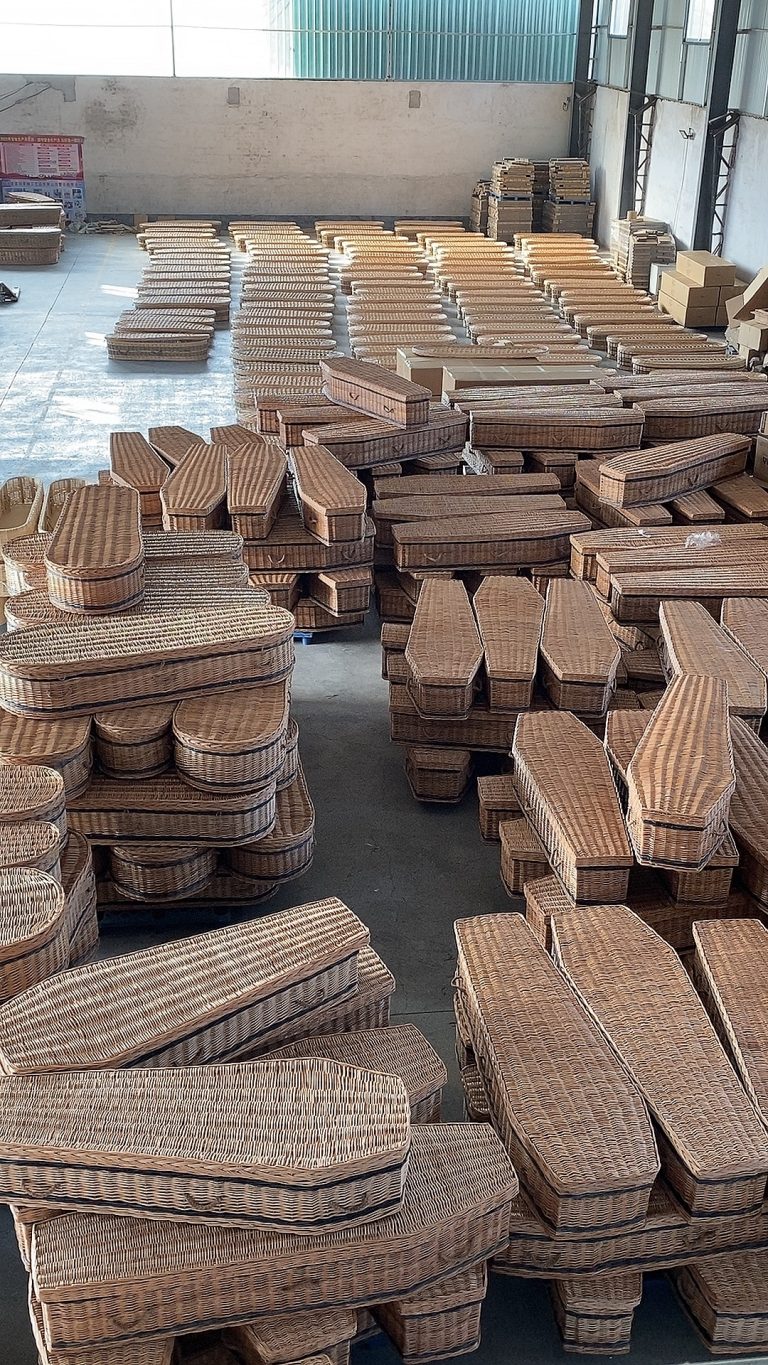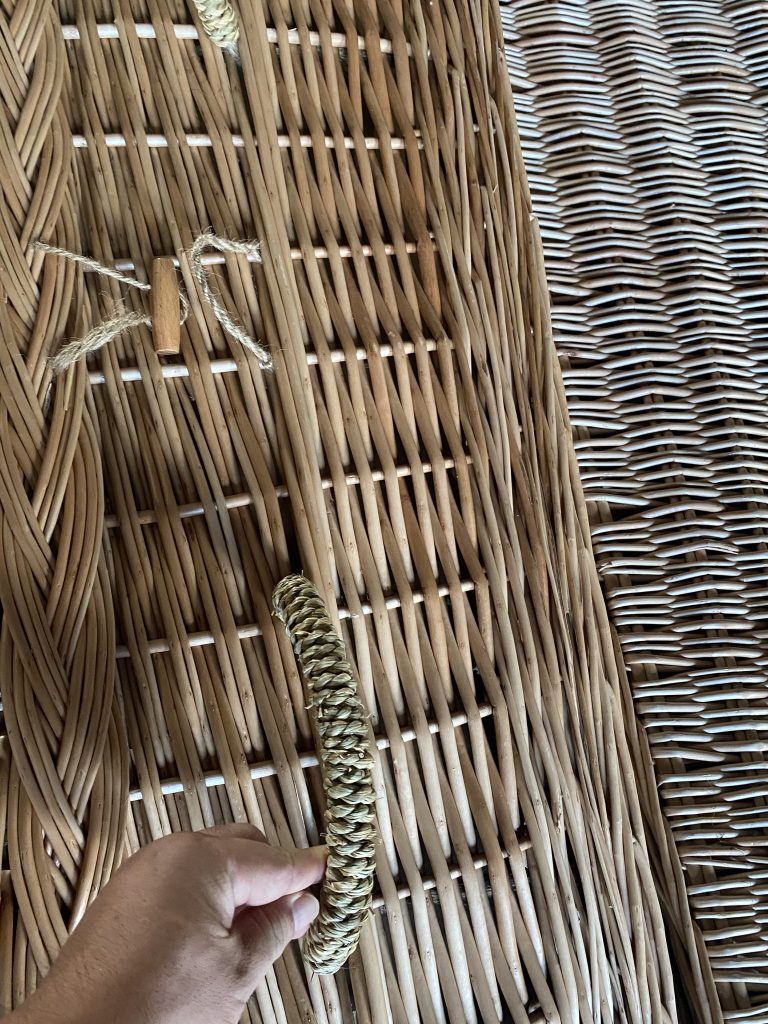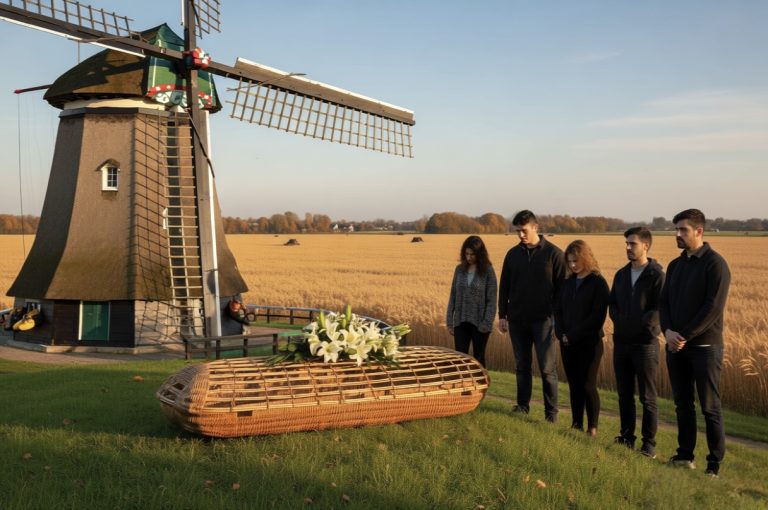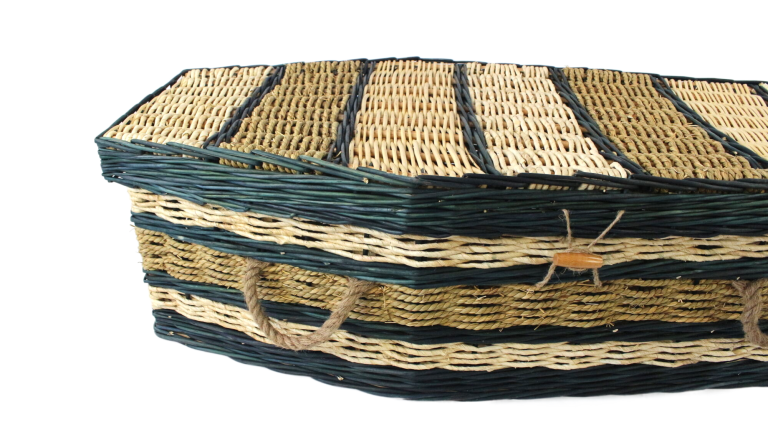The answer is a definite yes—woven coffins, crafted with natural, sustainable materials, excel in both burial and cremation, making them a globally sought-after choice for eco-conscious end-of-life rituals. At the heart of this booming industry lies Linyi Linshu, China’s leading source factory for woven coffins, where traditional craftsmanship meets international standards to serve markets across six continents.
For burial, woven coffins’ core advantage lies in their full biodegradability. Made from locally sourced, fast-renewable materials like bamboo, rattan, and natural linen—abundant in Linshu’s surrounding regions—these coffins break down naturally within 6–12 months in soil, leaving no toxic residues or plastic waste. This aligns perfectly with global burial trends: in Europe, 78% of eco-burial sites now mandate biodegradable containers; in Southeast Asia, where traditional earth burials remain prevalent, woven coffins honor cultural traditions while reducing long-term environmental impact. Linshu’s factory ensures each coffin is woven to withstand soil pressure and moisture during interment, balancing sustainability with structural durability.
For cremation, woven coffins address a key global concern: low-emission combustion. Unlike wooden coffins treated with chemical preservatives or metal fixtures, Linshu’s woven designs use 100% natural fibers that burn completely at 800–1000°C (the standard temperature for cremation). Tests by the International Cremation Federation confirm they release 40% fewer carbon emissions than conventional coffins and no harmful pollutants like formaldehyde. This has made them a top choice in cremation-dominant markets: Japan, where 99% of funerals use cremation, imports over 50,000 woven coffins from Linshu annually; in the U.S., demand has surged 65% in three years as states tighten cremation emission regulations.
What sets Linyi Linshu’s source factory apart is its ability to meet global diversity. As the original manufacturer, it cuts out middlemen, offering competitive pricing (30–50% lower than regional distributors). Its 50,000-square-meter facility combines traditional weaving techniques (passed down for generations) with modern quality control: each coffin is inspected for weave density, load-bearing capacity, and compliance with local standards (e.g., EU’s EN 16744 for funeral containers, Australia’s AS 4203). The factory also offers customization—from cultural patterns for African communities to minimalistic designs for Scandinavian markets—ensuring relevance across cultures.
In a world where 68% of consumers prioritize sustainability in end-of-life planning (2024 Global Funeral Report), Linyi Linshu’s woven coffins prove that environmental responsibility and global adaptability can coexist. As the industry’s trusted source, the factory doesn’t just supply coffins—it delivers a sustainable solution that honors both the planet and diverse cultural traditions worldwide.
We are a factory supporting eco friendly green funeral(natural willow coffins\bamboo caskets and so on) .. for detail please contact us www.phoenixnestcoffins.com;
Phoenix Nest ( Shandong ) Crafts Co.,Ltd.
Whatsapp: +86-18265103836 (Whatsapp & Wechat & Tel)
Email: jason@phoenxinestcoffin.cn
#willow coffin#greencoffins#bamboocaskets#urns#naturalcoffins#chinafactory#scattertube#naturalburial#FuneralSupplies#cross#flowerbands#shrouds #carrierfuneral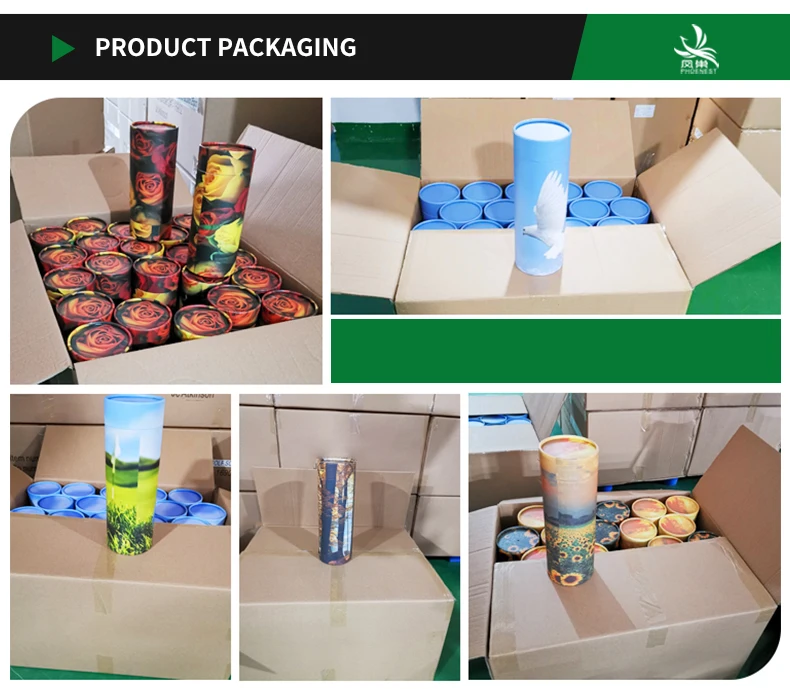 Ashes Scattering Tubes can also be used to divide ashes, for those wishing to split ashes amongst a family or for scattering in different locations#phoenixnestcoffins #ashesscattertube#crematorium#funeralsupply #funeral #cemetery@everyone@followers
Ashes Scattering Tubes can also be used to divide ashes, for those wishing to split ashes amongst a family or for scattering in different locations#phoenixnestcoffins #ashesscattertube#crematorium#funeralsupply #funeral #cemetery@everyone@followers

